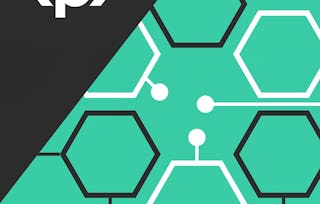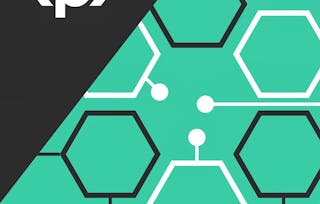This comprehensive course is designed to prepare you for a successful career in Java programming and software development, with a strong focus on object-oriented programming (OOP) principles. By leveraging Java, one of the most popular and versatile programming languages, you will gain a solid foundation in both Java programming and object-oriented concepts.

Object Oriented Programming

Expérience recommandée
Ce que vous apprendrez
Apply the concepts of OOP including abstraction, encapsulation, inheritance, and polymorphism to implement efficient and modular Java applications.
Create robust and maintainable code through Java classes, objects, and constructors using access modifiers, variable types, and control structures.
Apply static, final, overloading, abstract classes, interfaces, and object parameters to extend and enhance the functionality of Java applications.
Explain the use of generics and how to handle exceptions, perform file input/output operations, and implement multithreading concepts.
Compétences que vous acquerrez
- Catégorie : Software Engineering
- Catégorie : Unit Testing
- Catégorie : Performance Tuning
- Catégorie : OS Process Management
- Catégorie : Object Oriented Programming (OOP)
- Catégorie : File I/O
- Catégorie : Data Structures
- Catégorie : Programming Principles
- Catégorie : Debugging
- Catégorie : Java Programming
Détails à connaître

Ajouter à votre profil LinkedIn
novembre 2025
143 devoirs
Découvrez comment les employés des entreprises prestigieuses maîtrisent des compétences recherchées

Il y a 10 modules dans ce cours
In this module, you will be introduced to the fundamentals of object-oriented programming (OOP) and the Java programming language. You will learn about the basic principles of OOP, such as objects, classes, abstraction, encapsulation, inheritance, and polymorphism. Additionally, you will explore the structure of a Java program, primitive types, variables, and control statements. By the end of this module, you will have a solid foundation in OOP and Java programming concepts.
Inclus
14 vidéos18 lectures14 devoirs
In this module, you will learn about defining classes, objects, and constructors in Java. You will explore access modifiers, object creation, constructors, instance fields and methods, the difference between class and instance variables, mutable and immutable objects, command-line arguments, and use the Scanner class to read input.
Inclus
13 vidéos16 lectures14 devoirs2 laboratoires non notés
In this module, you will explore the static and final keywords in Java, method and constructor overloading, working with objects as method parameters, and handling arrays. You will learn about static variables and methods, final variables and methods, various overloading techniques, and objects as parameters and return type methods, and implement one-dimensional and two-dimensional arrays using the Arrays class.
Inclus
14 vidéos17 lectures15 devoirs1 laboratoire non noté
This module covers the essential concepts of inheritance, abstract classes, and interfaces in Java. You will learn about extending classes, method overriding, polymorphism, and the use of interfaces to implement multiple inheritance. The module also introduces nested, inner, and anonymous classes, as well as the comparable and comparator interfaces for comparing objects.
Inclus
13 vidéos16 lectures14 devoirs1 laboratoire non noté
In this module, you will explore the concept of generic programming in Java, which allows you to create classes and methods that work with different types of objects. You will learn about generic classes, interfaces, bounded types, and wildcards. Additionally, this module will introduce you to the Java Collections Framework, covering essential classes like ArrayList, LinkedList, Set, and Map. You will also learn about wrapper classes, autoboxing, and unboxing, which help you work with primitive types and objects seamlessly.
Inclus
13 vidéos16 lectures14 devoirs1 laboratoire non noté
In this module, you will delve into the crucial aspect of Java programming, which is exception handling. Exception handling allows programmers to manage errors and unexpected situations that may arise during program execution. The module also covers file handling in Java, which enables reading and writing data to and from files. Key concepts covered in this module include exception types, try-catch blocks, finally block, throw and throws keywords, custom exceptions, and various file handling classes.
Inclus
13 vidéos16 lectures14 devoirs3 laboratoires non notés
In this module, you will dive deeper into file handling and explore the Java Object Model. This module covers advanced file handling concepts like buffered streams, appending to files, and manipulating file properties. You will also learn about Java’s type system, object casting, the Object class, cloning, serialization, and Java’s Reflection API.
Inclus
14 vidéos17 lectures15 devoirs1 laboratoire non noté
This module focuses on the fundamental concepts of multithreading in Java, including the differences between multithreading and multitasking. It introduces the Thread class and the Runnable interface for creating and managing threads. Students will learn about thread states, life cycles, priorities, daemon threads, and synchronization. The module also covers the prevention and handling of deadlocks and methods for inter-thread communication.
Inclus
14 vidéos17 lectures15 devoirs1 laboratoire non noté
This module explores various best practices, additional concepts, and advanced techniques for Java programming. The key concepts covered in this module include coding standards, code review, refactoring, debugging, unit testing, memory management, garbage collection, common libraries and frameworks, JavaFX, networking, performance optimization, monitoring, and security best practices.
Inclus
13 vidéos15 lectures14 devoirs
In this final module, we will recap the key concepts covered throughout the course and explore various real-world applications of Java and object-oriented programming (OOP). You will learn about the different domains where Java is widely used, such as web development, mobile app development, desktop applications, big data, machine learning, enterprise applications, and the Internet of Things (IoT). Additionally, we will discuss the importance of continuous learning, staying updated in Java and OOP, advanced Java topics, and resources to help you pursue a career in Java development.
Inclus
14 vidéos14 lectures14 devoirs
Instructeur

En savoir plus sur Software Development
 Statut : Essai gratuit
Statut : Essai gratuit Statut : Essai gratuit
Statut : Essai gratuit Statut : Essai gratuit
Statut : Essai gratuitAmazon
 Statut : Essai gratuit
Statut : Essai gratuitUniversity of Michigan
Pour quelles raisons les étudiants sur Coursera nous choisissent-ils pour leur carrière ?

Felipe M.

Jennifer J.

Larry W.

Chaitanya A.

Ouvrez de nouvelles portes avec Coursera Plus
Accès illimité à 10,000+ cours de niveau international, projets pratiques et programmes de certification prêts à l'emploi - tous inclus dans votre abonnement.
Faites progresser votre carrière avec un diplôme en ligne
Obtenez un diplôme auprès d’universités de renommée mondiale - 100 % en ligne
Rejoignez plus de 3 400 entreprises mondiales qui ont choisi Coursera pour les affaires
Améliorez les compétences de vos employés pour exceller dans l’économie numérique
Foire Aux Questions
To access the course materials, assignments and to earn a Certificate, you will need to purchase the Certificate experience when you enroll in a course. You can try a Free Trial instead, or apply for Financial Aid. The course may offer 'Full Course, No Certificate' instead. This option lets you see all course materials, submit required assessments, and get a final grade. This also means that you will not be able to purchase a Certificate experience.
When you enroll in the course, you get access to all of the courses in the Specialization, and you earn a certificate when you complete the work. Your electronic Certificate will be added to your Accomplishments page - from there, you can print your Certificate or add it to your LinkedIn profile.
Yes. In select learning programs, you can apply for financial aid or a scholarship if you can’t afford the enrollment fee. If fin aid or scholarship is available for your learning program selection, you’ll find a link to apply on the description page.
Plus de questions
Aide financière disponible,

